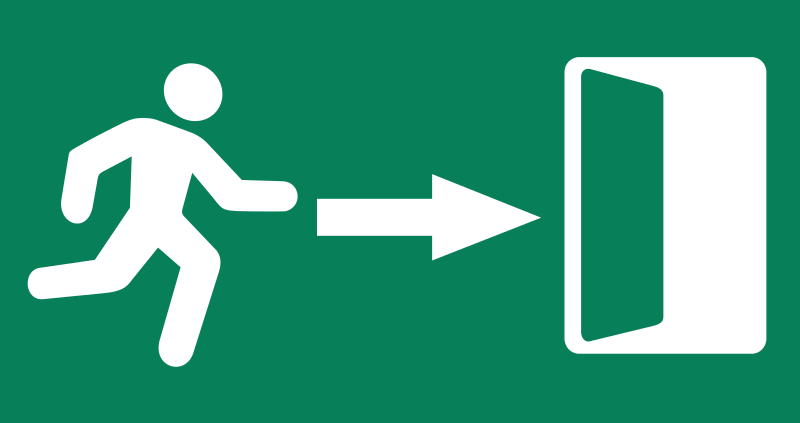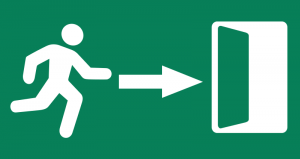Summary: Every page in this short book teaches you about situations worth quitting, and those worth persevering through. Seth Godin shows you why hard times may be the best thing that’s happened to your study or career.
B is for Big: what is this book’s big idea?
This idea is big indeed: Seth Godin tries to convince readers to become the best in the world at what they do. The concept is quickly defined further. In a reality where people have little time to focus on their choices and little incentive to shop around, their first choice will usually be someone on top of their list. They will go to a doctor that tops the search engine rankings. They will choose the best restaurant they’ve heard of – and so on.
For Godin, it seems logical that we should try to become best at what we do, in an area we have some control over. And to do this, he urges readers to recognize whether they’re going through a dip (which offers such rewards once it’s conquered) or a cul-de-sac (which just eats up our efforts without improving itself, or ourselves).
R is for Real: what reality is the book describing?
“The Dip” was written in 2007, and much of it remains relevant. I’d probably say it’s not very thorough in terms of researching and describing its case studies, but then again – it’s not a big book.
Quitting pointless situations to focus on the one we can really master – that premise is much more accessible than some other Godin’s books. This can apply to more walks of life, more industries or creative pursuits. I know some books Seth Godin wrote before, or since, tend to focus on a particular audience in a particular situation. This one is more down-to-earth.
The assumption made at the beginning of this book is that we are able to quit a bad job if we want to focus on a meaningful thing. This may or may not be true for Godin’s readers; I will suggest an alternative reading in a minute.
A is for Action: what is the book suggesting we should do?
Two things: quit early, quit often.
This is contrary to what we’re taught in school: quitters never win, and well-rounded students persevere even if it’s pointless. As it turns out, Godin’s career advice is often not what they teach you in colleges!
Quitting early means you’re not likely to waste a lot of time or effort in a situation which doesn’t deserve your presence. You won’t give yourself time to “settle in,” which will make it easier to re-focus without second thoughts and emotional baggage.
Quitting often means that you’re more prone to saying “no” to mediocre situations. You’re training your quitting muscle and becoming more comfortable with just walking away from a situation before it surrounds you. This is a valuable skill to have, even as more and more people are desperate to settle and “hold a job down.”
V is for Variety: what other perspectives are possible?
(I’m looking for a non-male writer for this section. Please recommend one on Facebook / Twitter.)
For a more thorough perspective on people who became the best in the world at what they do, I’d recommend Cal Newport’s “So Good They Can’t Ignore You.” This book’s perspective favours skills over passion, and would probably frown at the idea of job-hopping that Godin’s quit-happy attitude can promote. But the values are similar: being the best has its own, very exclusive set of rewards.
For a completely different perspective, try one of David Graeber’s books. “The Dip” was published one year before the 2008 recession – and since then, the outlook on “doing what you love” and “using your skills for expertise” has become a lot more gloomy. Graeber’s idea of “bullshit jobs” sounds harsh, but provides some key context to Godin’s pep-talk.
E is for Effect: what influence will this book have?
I read my copy in 2009, and made my mind up about a high-level teacher-training course. It cost me (in effort, debt, and time out of work), and the cost was definitely Dip-like. But it helped me through a lull in my career – and the book made me realize that.
“The Dip” can help you take a good hard look at your work, your projects, your sports or passions. It may lead you to unwelcome conclusions or questions (“What am I still doing here?”). It’s debatabe whether or not you’re still able to fulfil the book’s promise of becoming the best in the world. But it’s certainly healthy to at least examine these options and learn about them – which Seth Godin teaches you to do, expertly.
Wiktor (Vic) Kostrzewski (MA, DELTA) is an author, translator, editor and project manage based in London. When he works, he thinks about languages, education, books, EdTech and teachers. When he doesn’t work, he probably trains for his next triathlon or drinks his next coffee.
BRAVE Learning (formerly known as 16 Kinds) is a lifelong learning and productivity blog. If you enjoy these posts, please check out one of my books and courses.
My recent publications, and my archive, is now all available on my new project: PUNK LEARNING. Hope to see you there!


